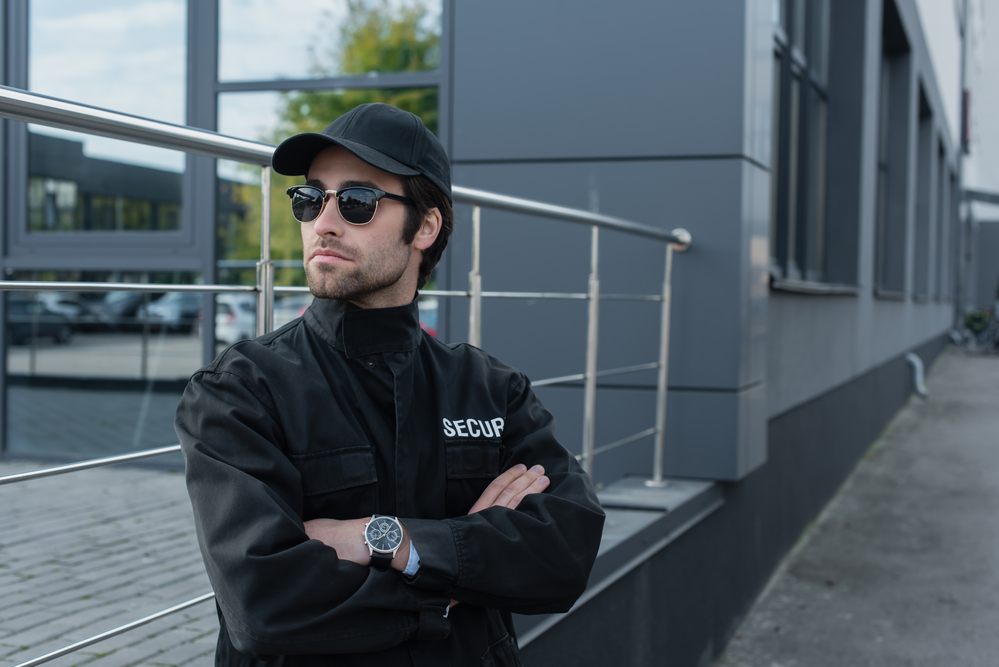Understanding the nuances between a protection officer and a security guard is essential for businesses and individuals looking to employ security services that best suit their needs.

This blog aims to elucidate these differences, shedding light on the specific roles and responsibilities that define each position.
Security Guard: The First Line of Defence
A security guard is typically employed to safeguard property, assets, and people. This role is predominantly preventive in nature; security guards are stationed at various types of sites, such as commercial buildings, retail outlets, and event venues, to deter criminal activity and ensure the safety of the premises and its occupants.
Their duties often include monitoring CCTV systems, conducting patrols, controlling access points, and managing crowd control. Security guards are the eyes and ears of the premises, always on the lookout for any signs of disturbance, theft, or unauthorised entry.
Training for security guards in the UK is regulated by the Security Industry Authority (SIA), which mandates that individuals complete a licensed training course before obtaining a work permit. This ensures that all security guards possess a foundational understanding of their legal powers, conflict management techniques, and the responsibilities of their role.
Protection Officer: A Personalised Security Approach
Protection officers, often referred to as close protection officers or bodyguards, provide a more personalised form of security, focusing on the safety of individuals rather than property.
Their primary responsibility is to protect their clients from physical harm, kidnapping, harassment, and even unwanted attention. This role demands a high level of vigilance, discretion, and readiness to act in the client’s defence.
The clientele for protection officers is diverse, ranging from celebrities and high-net-worth individuals to diplomats and corporate executives who may face heightened personal security risks.
Unlike security guards, whose operations are more static and location-bound, protection officers often accompany their clients, ensuring their safety during travel, public appearances, and private engagements.
The training for protection officers is more extensive than that for security guards, with a strong emphasis on risk assessment, close-quarters defence, first aid, and often advanced driving techniques.
In the UK, close protection officers must also be licensed by the SIA, having completed a comprehensive training programme that equips them with the skills necessary to manage a wide range of security scenarios.
Key Distinctions and Operational Contexts
The key distinction between a security guard and a protection officer lies in their operational focus—property and assets versus individuals—and their approach to security. Security guards provide a visible deterrent to criminal behaviour, maintaining a secure environment for businesses and public spaces. In contrast, protection officers offer a tailored security solution, addressing specific threats to an individual’s safety with a high degree of personal attention and expertise.
Conclusion
Both security guarding and protection officers play vital roles in the broader security landscape, each addressing different aspects of safety and protection. Whether safeguarding a shopping centre or ensuring the personal safety of a VIP, the expertise and vigilance of these professionals are indispensable. By understanding the differences between these roles, clients can make informed decisions when seeking security solutions, ensuring that their specific security needs are met with the appropriate level of expertise and response.